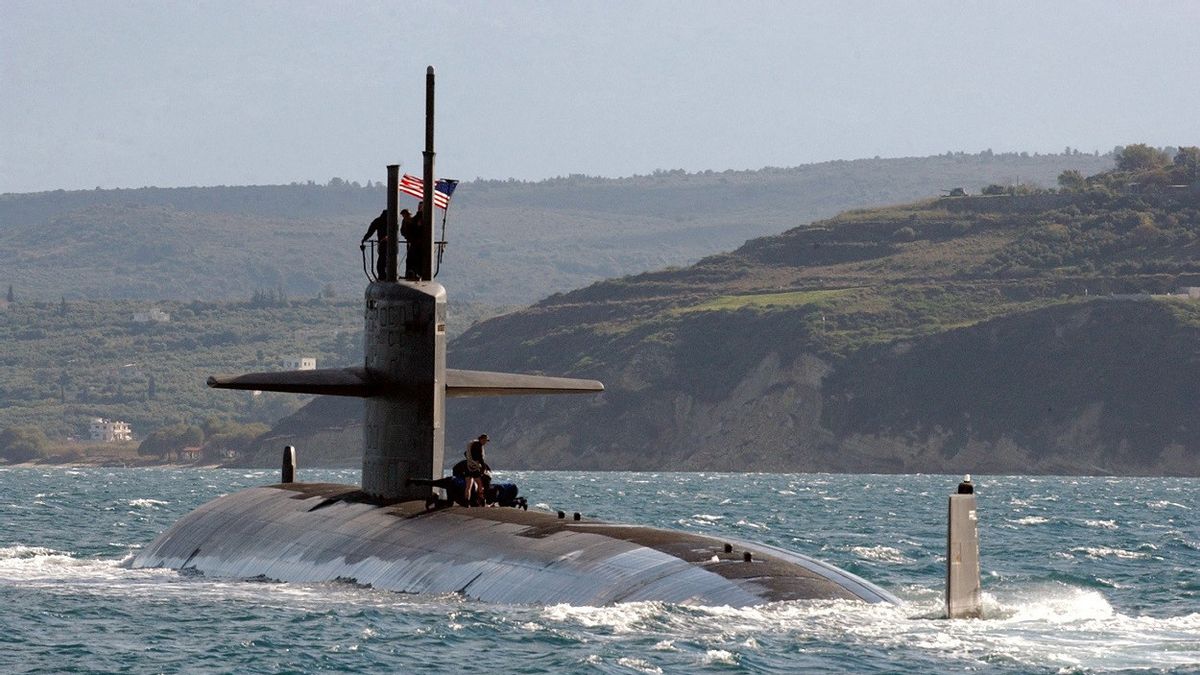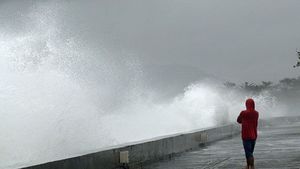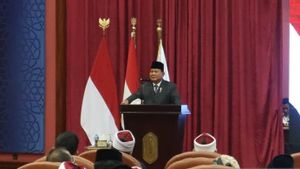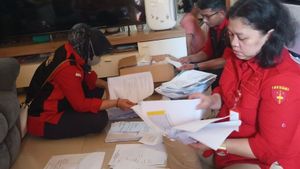JAKARTA - The Indo-Pacific cooperation between Australia, Britain and the United States (AUKUS), which was announced last September 15, has drawn various comments, including from ASEAN countries, especially regarding the agreement to build a nuclear submarine for the Kangaroo Country.
In contrast to France, which criticized the construction of the submarine, because Australia canceled the project to order conventional submarines worth tens of billions of US dollars.
Indonesia and Malaysia, two of the five founding countries of ASEAN, fear that the cooperation formed will trigger an arms race, including nuclear weapons in the Indo-Pacific region.
Indonesian Foreign Minister Retno Marsudi stressed her concern regarding the arms and power race that threatens security stability, including with the Australian nuclear submarine deal.
In the virtual meeting of the 'Asia Society' on the sidelines of the 76th UN General Assembly in New York, United States, Foreign Minister Retno said Australia was committed to respecting the Treaty on the Non-Proliferation of Nuclear Weapons (NPT). .

"I convey, we accept Australia's explanation, we listen to the commitments given by Australia, including to continue to respect the NPT, non-proliferation principles and international law," said Foreign Minister Retno Marsudi in a virtual press conference Wednesday, September 22.
"In the 'Asia Society' I emphasized what we all don't want is the possibility of an increased arms race and power projection in the region, which of course will threaten regional security stability," he continued.
Similar concerns were conveyed by the Office of the new Prime Minister (PMO) of Malaysia, Ismail Sabri Yakoob. The neighboring country is concerned that the new partnership has the potential to trigger a nuclear arms race in the Indo-Pacific region.
"This will provoke other powers to also act more aggressively in the region, especially in the South China Sea," Malaysia's PMO said in a statement, citing CNA from Bernama Sept. 18.
"As a country within ASEAN, Malaysia adheres to the principle of safeguarding ASEAN as a Zone of Peace, Freedom and Neutrality (ZOFPAN)," the statement continued, with PM Ismail Sabri having spoken on the phone with Australian PM Scott Morrison the day before.

Meanwhile, the Philippines and Singapore, two other countries that are also the founders of ASEAN, have different opinions regarding the AUKUS agreement. 21, the Philippines backs a new defense partnership between the United States, Britain and Australia, hoping to maintain a balance of power in the Indo-Pacific region, a view in stark contrast to some of its neighbors.
The alliance will see Australia acquire the technology to deploy nuclear-powered submarines as part of an agreement meant to respond to China's growing power.
“Improving the ability of close foreign allies to project power should restore and maintain balance rather than destabilize it,” said Philippine Foreign Secretary Teodoro Locsin.
Locsin said that without the actual presence of nuclear weapons, AUKUS' move would not violate the 1995 treaty to keep nuclear weapons away from Southeast Asia.
"Proximity breeds short response times, thereby increasing the military capacity of ASEAN's close friends and allies to respond to threats to the region or challenge the status quo. This requires enhancing Australia's capabilities, coupled with its key military allies, to achieve that calibration," Locsin added, without elaborating. the threat

Meanwhile, Singapore welcomes the news of this new alliance, hoping to bring good contributions, reports Newsweek from the Associated Press September 17.
Singapore's Ministry of Foreign Affairs said Prime Minister Lee Hsien Loong spoke to Prime Minister Scott Morrison by phone. PM Lee said he hoped the deal would "constructively contribute to regional peace and stability and complement the regional architecture," the ministry said.
Previously, citing the ABC on September 21, Australian Prime Minister Scott Morrison on his flight to the United States called President Joko Widodo to explain the decision, stressing that the ships would not be armed with nuclear weapons.
On the occasion, PM Morisson also told President Joko Widodo that he would maintain his obligations under the Nuclear Non-Proliferation Treaty (NPT).
The English, Chinese, Japanese, Arabic, and French versions are automatically generated by the AI. So there may still be inaccuracies in translating, please always see Indonesian as our main language. (system supported by DigitalSiber.id)













